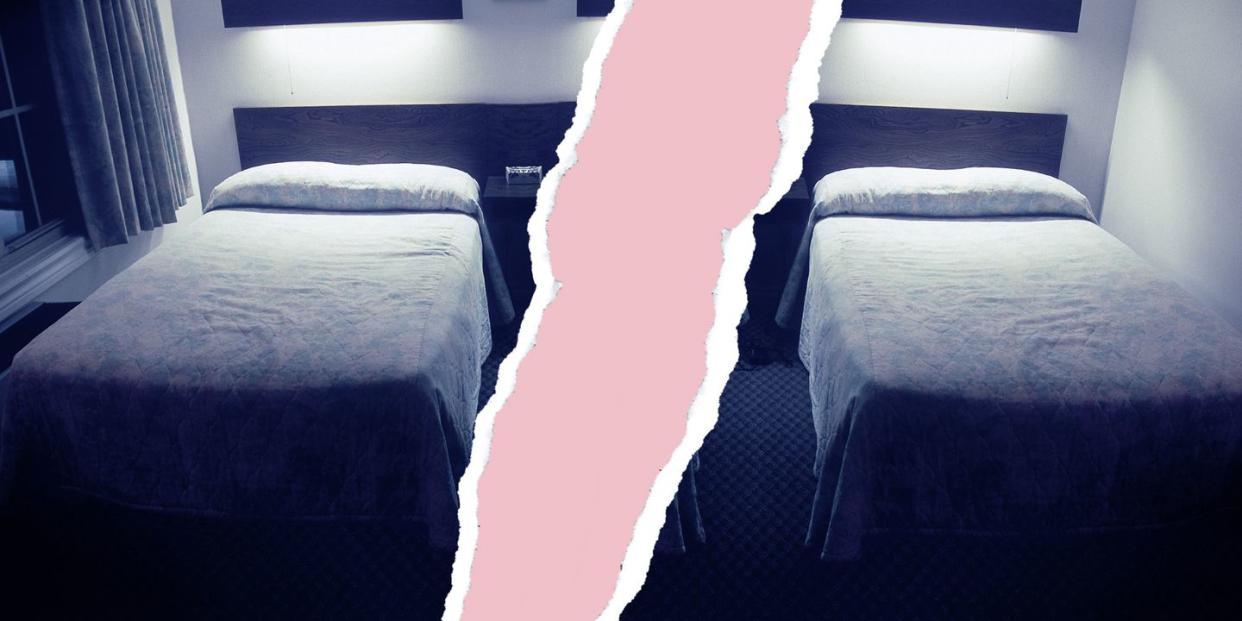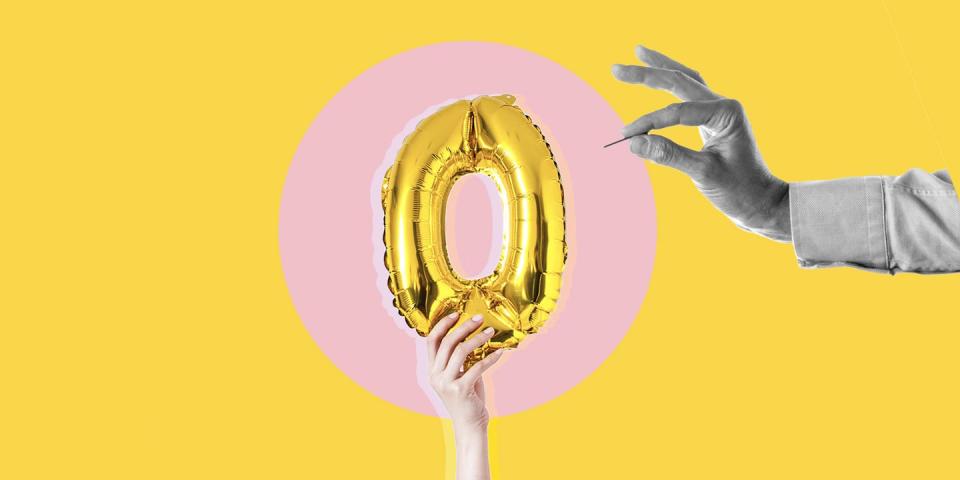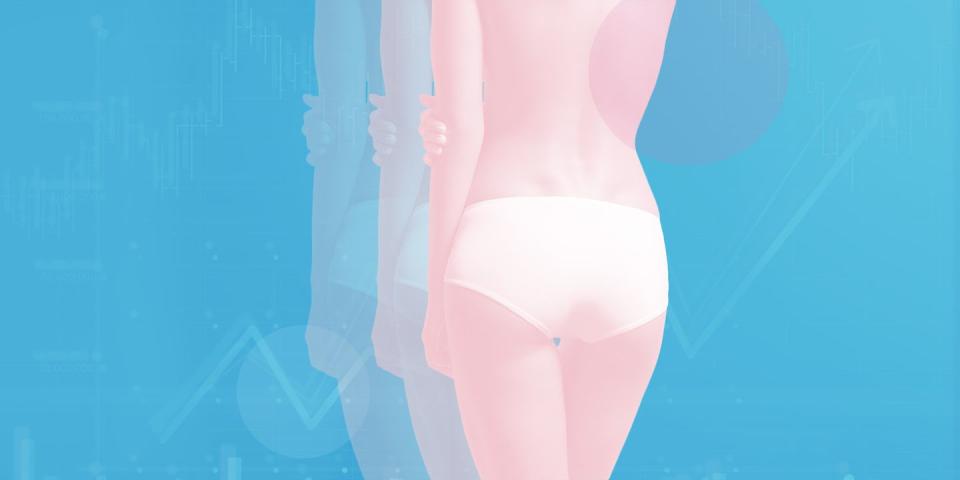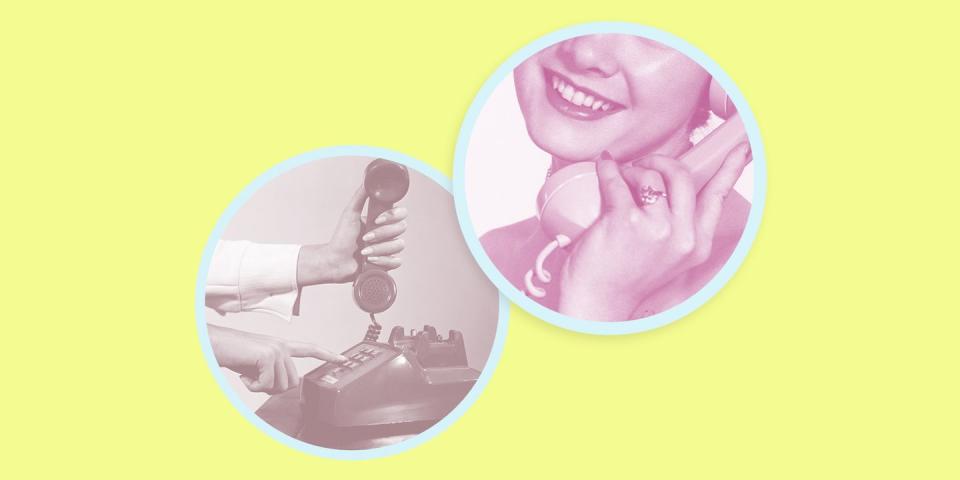Not to Freak You Out, But Your Low Sex Drive Could Be a Sign of HSDD

Sure, you probs don't sit around thinking about your libido during your free time (ha! Like you have any). But being in the mood—or being able to get turned on when bae is looking at you like the snack you are—is an important part of what makes you healthy. Oh, and happy. Oh, and satisfied.
FWIW, it's completely normal to feel like "Nah, I'm good" when you're stressed AF, tired, or have been fighting with your partner. But sometimes, women can struggle with something else that can sabotage your sex life. It's a form of sexual dysfunction called Hypoactive Sexual Desire Disorder (HSDD).
In a recent survey* of 1,686 women ages 25 to 49, the majority said that being sexually active was important to them, but 64 percent had one or more symptoms of sexual dysfunction, like regularly not being in the mood for unknown reasons, or feeling like sex was a chore. For these women, that's led to self-consciousness (35 percent), disappointment (27 percent), and awkwardness (24 percent).
Some other surprising stats from the survey: More than half of women have talked about their sexual dysfunction with someone (their partner, fam, or friends), but only 24 percent ran it past their doctor. Why? They either didn't think it was a big deal or assumed they'd feel normal again at some point. This is troubling, considering that 87 percent of women weren’t even aware that HSDD exists. And while only 1 percent of the women surveyed had ever been diagnosed with HSDD, 15 percent thought they might actually have it.
There's A LOT to unpack here, so allow us to tackle it piece-by-piece. Here's what you need to know about a persistent lack of sexual desire, plus how to tell if you're actually experiencing it yourself.
What is HSDD, exactly?

HSDD is one of two sexual desire disorders in the Diagnostic and Statistical Manual of Mental Disorders (DSM) and is defined as "persistently or recurrently deficient (or absent) sexual fantasies and desire for sexual activity" that causes "marked distress or interpersonal difficulty." Yowzas. Basically, it’s a condition where women lose interest in sex, according to the International Society for Sexual Medicine (ISSM).
About one in 10 women have the condition, according to the ISSM, so it's common to have.
Back up!
I thought you said it’s normal to not crave sex sometimes?

Yep, it's normal for your arousal to take a vacation here and there. "In men and women, sexual desire is a barometer of so many other factors," says New York City sex therapist Ian Kerner, Ph.D., author of She Comes First. "It's like the stock market—it goes up and down, but for so many different reasons." However, if your sex drive is completely MIA for a long period of time, and it's stressing you out, there's a chance it could be due to HSDD.
That last element is crucial, though. An important component of HSDD is whether someone is actually bothered by their low levels of desire, says Jess O'Reilly, Ph.D., host of the @SexWithDrJess Podcast. "Some people simply aren't interested in sex, and that's okay," she says. "It's their healthy baseline, which of course might fluctuate over time." If you have a low sex drive and you don't really GAF about it, it's not HSDD.
What can I do about it?

"The first step is finding a professional—a physician, psychologist, or sex therapist—to discuss desire, and taking an inventory that will take a more cognitive approach to measuring desire,” says Jessica Shepherd, M.D., an ob-gyn at Baylor University Medical Center. There are a slew of things that can cause your sex drive to tank, and your doctor will likely try to figure out what’s behind your situation.
Your doctor may also give you what's known as the Decreased Sexual Desire Screener, which is a series of five questions to help suss out whether you might have HSDD. Questions include things like, "In the past, was your level of sexual desire good and satisfying to you?" and, "Are you bothered by your decreased level of sexual desire?" It also includes questions on factors that could lower your sex drive.
From there, your doc should do a complete medical checkup, the ISSM says. "You may be experiencing low desire due to a medical issue or as a side effect of a medication you're already on, so your doctor should know," says Kerner. If your MIA arousal can be linked to something in particular, like breastfeeding or side effects of meds, addressing that could fix the issue.
If you are diagnosed with HSDD, your doctor may recommend cognitive behavioral therapy with a general therapist, or sex therapy, to see if it helps. "Go to an American Association of Sexuality Educators, Counselors and Therapists (AASECT) sex therapist or counselor who can help discuss the issue from many perspectives, including the biological and/or medical," Kerner says. It's likely that they can better assess you than your GP.
It's also important to ask yourself why you want sex, O'Reilly says. "Is it because it felt so good and you miss having it? If so, why don't you want it? Are you simply not making the time for it? Are you struggling to get in the mood because you have difficulty being present? Mindfulness exercises might help."
Done all of this and are still struggling? There are medications designed to treat people with HSDD. Keep in mind that even if your doctor thinks you could use meds to help with your low libido, you may also still need to address the range of other issues affecting your desire levels (like not being able to express your needs to your partner, your body image, or exhaustion, says O’Reilly).
TL;DR: Talk about it. Seriously.

Without speaking up to a pro about your low desire, you can't get help. "Not discussing these feelings or lack of sensations can create a blunted effect to intimacy," Shepherd says.
You may find out that you do, in fact, have HSDD, or it may be that your low desire is because of something else entirely. Either way, if your sex drive isn't what you wish it was, there's help.
*Survey was conducted by Women's Health & Cosmopolitan, in partnership with a pharmaceutical company that sells a drug to treat hypoactive sexual desire disorder (HSDD).
You Might Also Like

